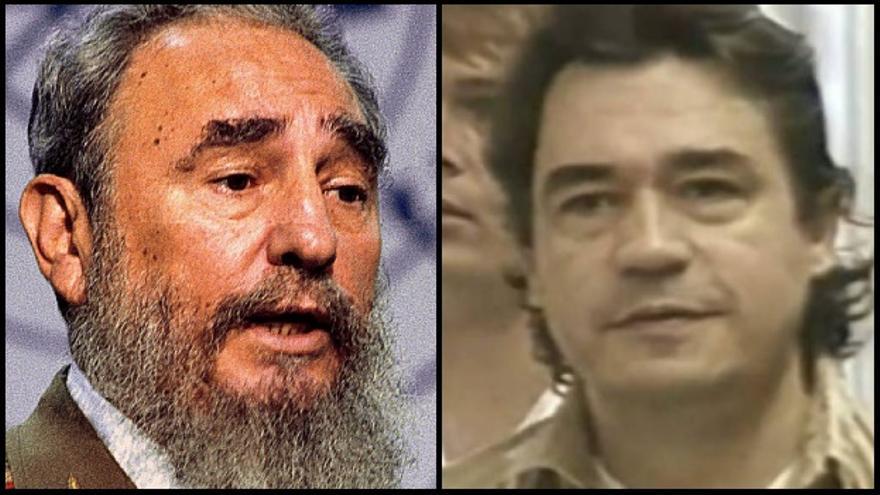
![]() 14ymedio, Madrid, January 25, 2024 — Former Colombian drug trafficker Carlos Lehder, who has just published his memoirs under the title Life and Death of the Medellín Cartel, continues to reveal details about the relationship of the criminal organization with Cuba. In a telephone interview with journalist Vicky Dávila on Semana magazine’s television program, the former criminal reiterates that “obviously Fidel Castro had to know about the cocaine trafficking; he was the conductor of the orchestra.”
14ymedio, Madrid, January 25, 2024 — Former Colombian drug trafficker Carlos Lehder, who has just published his memoirs under the title Life and Death of the Medellín Cartel, continues to reveal details about the relationship of the criminal organization with Cuba. In a telephone interview with journalist Vicky Dávila on Semana magazine’s television program, the former criminal reiterates that “obviously Fidel Castro had to know about the cocaine trafficking; he was the conductor of the orchestra.”
When asked about the veracity of this assertion, he says: “I imagine that Fidel Castro was aware of everything, but I don’t know, because I didn’t see them talking together. I know that Raúl Castro was the commander of that operation, the leader, and I emphasize that they, although they did not know how to traffic cocaine, immediately tried to control the entire business.”
Beyond the book, where he tells about his meeting with the youngest of the Castros, then Minister of Defense, Lehder revealed that being imprisoned in the United States, where he was extradited in 1987, and cooperating with authorities, he learned that the U.S. government tried to file federal charges against Raúl Castro for “cocaine trafficking.”
They never brought federal charges against Raúl Castro although they had mountains of evidence, and a number of boatmen had been caught with cocaine coming from Cuba
The U.S. security and surveillance forces, says the former drug trafficker, “had fully monitored the shipments and boats that arrived with cocaine directly from the port of Mariel and other Cuban ports to the coasts of Florida.” He also says that “they were accumulating evidence” at the time when President George Bush, the father, lost the election to Bill Clinton. “There was, of course, a change of prosecutors and whatever, but they never brought federal charges against Raúl Castro although they had mountains of evidence, and a number of boatmen had been caught with cocaine coming from Cuba who were cooperating with the U.S. government.”
Lehder reports that he made two trips to Cuba and didn’t want to do any more. “I already saw the maneuvers they were doing, very dangerous maneuvers for me,” he says, without giving more details, and he criticized the Cuban regime: “They had their boots on the necks of the Cuban people.” Considering the Cuban government a “dictatorship,” he says, “that’s too kind a word; it’s barbaric,” an “affront to every human being and an insult to Latin America and God.”
Without specifically mentioning the famous drug trafficking case that led to the execution of General Arnaldo Ochoa, Tony de la Guardia, Jorge Martínez Valdés and Amado Padrón Trujillo in 1989, Lehder tells journalist Vicky Dávila about the “debacle” of the deal with the Colombians: “The Cubans ended up killing each other for the cocaine business.”
Faced with the suspicion raised by his testimony, which accuses numerous leaders of having accepted bribes from the cartel, Lehder argued: “The honesty of my word gave me my freedom. Pablo Escobar trusted my word for many years; the American government, with which I have no pending accounts, trusted my word and gave me my freedom. The Prime Minister of the Bahamas trusted my word, and we negotiated with him and I paid him monthly. It was unfortunate, but that was the code of conduct among international drug traffickers, who have to bribe the authorities to get protection.”
Translated by Regina Anavy
____________
COLLABORATE WITH OUR WORK: The 14ymedio team is committed to practicing serious journalism that reflects Cuba’s reality in all its depth. Thank you for joining us on this long journey. We invite you to continue supporting us by becoming a member of 14ymedio now. Together we can continue transforming journalism in Cuba.
